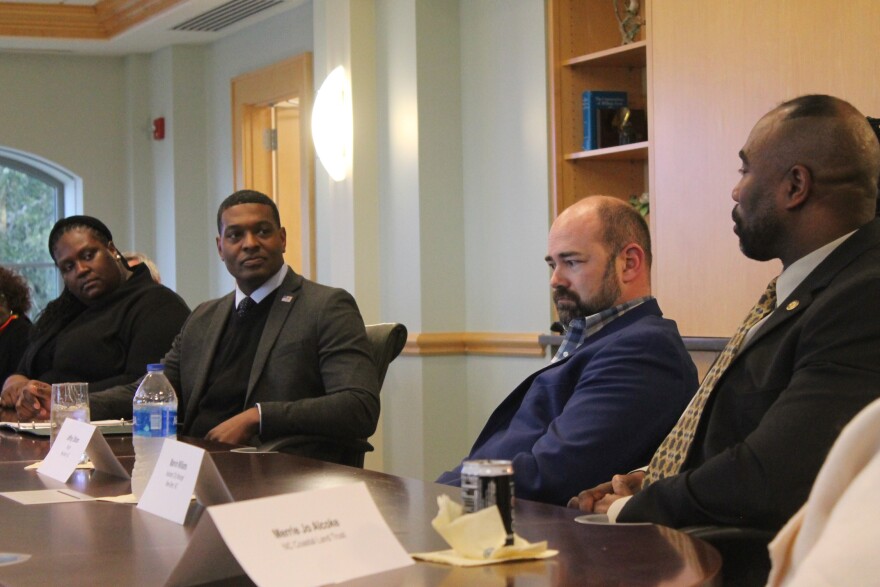EPA Administrator Michael Regan stopped in New Bern yesterday for a roundtable discussion with local leaders on how to tap billions of dollars in federal spending for water infrastructure and environmental initiatives. In attendance were New Bern Mayor Jeffrey Odham, Pollocksville Mayor Jay Bender, state Representative Steve Tyson, several Tryon Palace staff, and the director of the Coastal Land Trust.
With more than $130 billion approved by Congress, the Environmental Protection Agency is tasked with identifying projects to receive funding.
"The solutions are local, the problems are big," Regan said, emphasizing that local governments must apply to receive funding.
The $130 billion comes from two pieces of legislation: the Bipartisan Infrastructure Law passed in 2021 and the Inflation Reduction Act passed in 2022. Much of that money is earmarked for specific projects, like $23 billion for water infrastructure, $15 billion for lead pipe replacement, and $10 billion for addressing PFAS and other emerging contaminants.
In short, the central message for yesterday's event was that the EPA has money it's eager to spend on local projects.
"In these buckets of money, there are ample opportunities to come together with solutions," Regan said.
Smaller, rural communities often struggle with securing federal and state aid because they may not be aware of it or lack dedicated personnel to pursue these grants. Secondly, smaller towns are often overlooked because their projects impact a smaller population.
In a press conference after the event, Regan faced questions about how local communities could become competitive. In the case of Havelock, a city of 20,000 that has endured years of sewer overflows and spills due to outdated infrastructure, Regan said money is specifically set aside for small, rural communities as part of the Biden Administration's Justice 40 initiative and environmental justice projects.
The Justice 40 initiative promises that 40% of federal funds from the two pieces of legislation will be sent to underserved communities.
"We know that some communities are disproportionately impacted by that waste, that's where these environmental justice dollars come into play," Regan said, referring to Havelock's case.
Regan, who is a native of Eastern North Carolina, rejoiced in returning to his home state. Born in Goldsboro, Regan went on to lead the North Carolina Department of Environmental Quality under Governor Roy Cooper before being tapped to lead the EPA under President Joe Biden.
In the background of Regan's tenure are Supreme Court cases that could make it harder for federal regulators, like the EPA, to implement new rules. Last year, the Supreme Court pared back an EPA regulation regarding wetlands protection.
"With some of the recent rulings, it's a bit disappointing because we're here in New Bern, our wetlands, our Pocosins are so important to filter pollution and for our economy," he said.
In this session, the Court is considering a case that could limit an agency's ability to interpret existing laws. Currently, courts will defer to agency interpretations of ambiguous laws when developing rules in response to legislation. This is known as Chevron deference and a case pending in the Supreme Court could overturn that practice.
He said regardless of the Court's decision, he would abide.
"When the Supreme Court speaks, I am obligated to follow the law," Regan said. "We will respond to these different rulings and do everything in our power to continue to protect the environment and public health. Clean air and clean water should be something everyone has access to."



